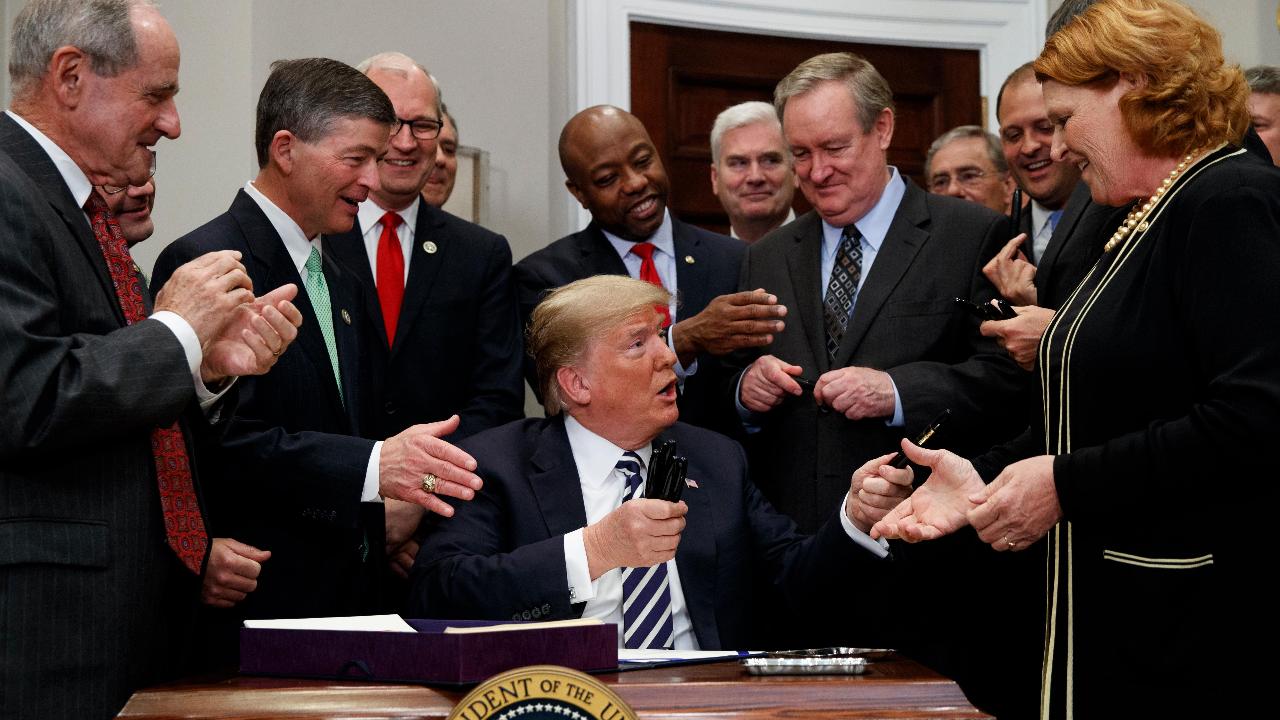Trump signs Dodd-Frank rollback: What you need to know
President Donald Trump kept his promise on Thursday to ease some of the financial restrictions put in place under the Obama administration in the wake of the 2008 financial crisis.
“One size fits all, those rules just don't work,” the president said at the White House. “As a candidate, I pledged that we would rescue … community banks from … the disaster of Dodd-Frank. And now we're keeping that commitment.”
Dodd-Frank was enacted to protect investors from another financial crisis. Here’s what the new law alters:
‘Too big to fail’
Under the prior law, banks with assets in excess of $50 billion are deemed as being potentially “too big to fail,” and were therefore subject to a host of rigorous testing and regulation. That included annual stress tests.
Many argued the $50 billion threshold is too low and hits medium-sized financial institutions as well as community lenders, hindering their ability to both loan and grow.
The new law raises the “too big to fail” threshold to $250 billion, which means institutions such as American Express and Barclays could be exempt from the regulation.
Federal Reserve Chair Jerome Powell said during congressional testimony in February that he did not believe any banks were still too big to fail.
Volcker Rule
The law also eliminates Volcker Rule requirements on banks with assets under $10 billion. The Volcker Rule prohibits banks from making risky investments with their own money.
After its implementation, financial institutions were forced to overhaul their trading operations.
Fed officials have said that banks, particularly those with smaller trading desks, spend too much time interpreting and trying to follow this rule.
Mortgage lending
The new law gives small banks a reprieve from mortgage lending rules that require banks to disclose detailed information on whom they are lending to.
Banks originating fewer than 500 loans each year no longer have to report racial data, including the race and ethnicity of their borrowers.
Smaller banks with less than $10 billion in assets are not required to follow the underwriting standards set forth under Dodd-Frank, which aim to ensure institutions are not loaning to people who are likely to default.
Credit freezes
In the wake of a slew of massive hacks in recent years, notably the Equifax cyberattack that exposed the sensitive information of more than 147 million Americans, Congress is seeking to require the three major credit agencies – Equifax, TransUnion and Experian – to freeze and unfreeze consumers’ credit reports for free.




















